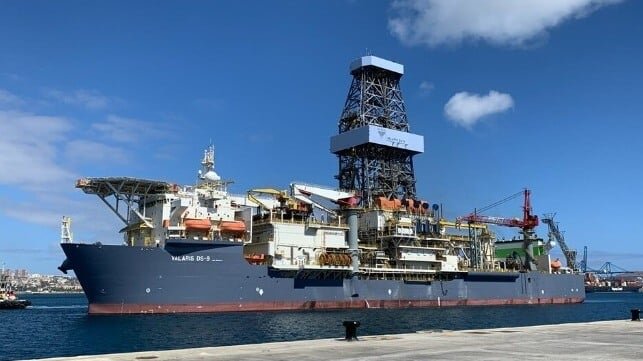ExxonMobil and Qatar Energy Make Significant Gas Discovery off Cyprus
ExxonMobil and Qatar Energy have struck another natural gas deposit in the Block 10 lease area south of Cyprus, marking a significant find that adds to a previous discovery in the same region. The latest exploration success further enhances Cyprus’ growing offshore gas potential for potential export ventures.
The recent drilling at Exxon’s Pegasus-1 well revealed approximately 350 meters of gas-bearing reservoir in a deepwater location situated at a depth of around 6,000 feet. While additional evaluation is required to fully assess the findings, the initial results are promising.
Adjacent wells in the same block, namely Glaucus-1 and Glaucus-2, have also uncovered a high-quality gas reservoir. Cypriot authorities estimate that the resource base within the Glaucus reservoir could amount to approximately 3.7 trillion cubic feet of natural gas. However, the nearby Elektra field, initially thought to be lucrative, was found to contain noncommercial quantities.
Cyprus’ Growing Potential as a Gas Producer
Cyprus is emerging as a new frontier for gas production, boasting at least five, and potentially six, sizable fields ripe for development. The country’s offshore energy reserves could offer a crucial strategic advantage to Europe, which is seeking alternative natural gas sources to offset restricted Russian supplies. A subsea gas pipeline connecting Cyprus to Greece could alleviate the EU’s energy challenges.
Despite the promising prospects, the road to commercial production faces significant hurdles, both financial and political. Turkey objects to Cyprus-led offshore exploration and production activities without involving Northern Cyprus, the Turkish-aligned region of the island. Additionally, Turkey opposes any plans for a pipeline linking Cyprus to Greece. The United States withdrew its support for this proposed pipeline route in January 2022, putting the project on hold.
Exploring Export Options
An alternative export avenue lies to the south, where Italian energy giant Eni has inked a deal to transport Cypriot gas from the Cronos field to Egypt’s Damietta LNG facility for processing and global shipment. Other projects within the southern Cypriot Exclusive Economic Zone (EEZ) could follow a similar development trajectory. Moreover, Cyprus has approved a plan to utilize a floating liquefaction plant (FLNG) at Chevron’s Aphrodite gas field for gas export.
While Cyprus’ offshore gas discoveries hold immense promise for the country’s energy sector and could address Europe’s gas supply concerns, navigating the complex geopolitical landscape and finding viable export routes remain key challenges. The recent find by ExxonMobil and Qatar Energy underscores the region’s potential as a significant player in the global energy market.

